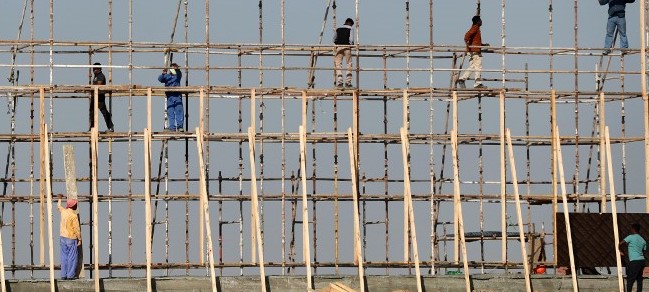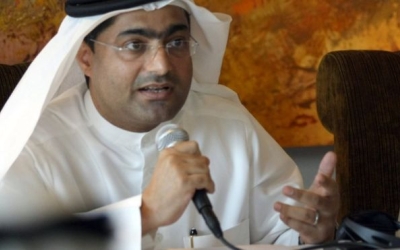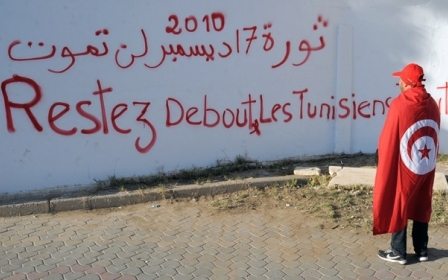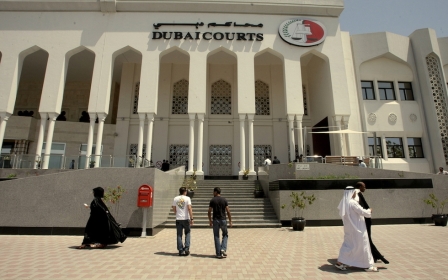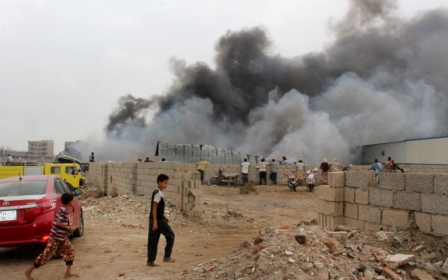Pope Francis' UAE visit: A public relation coup
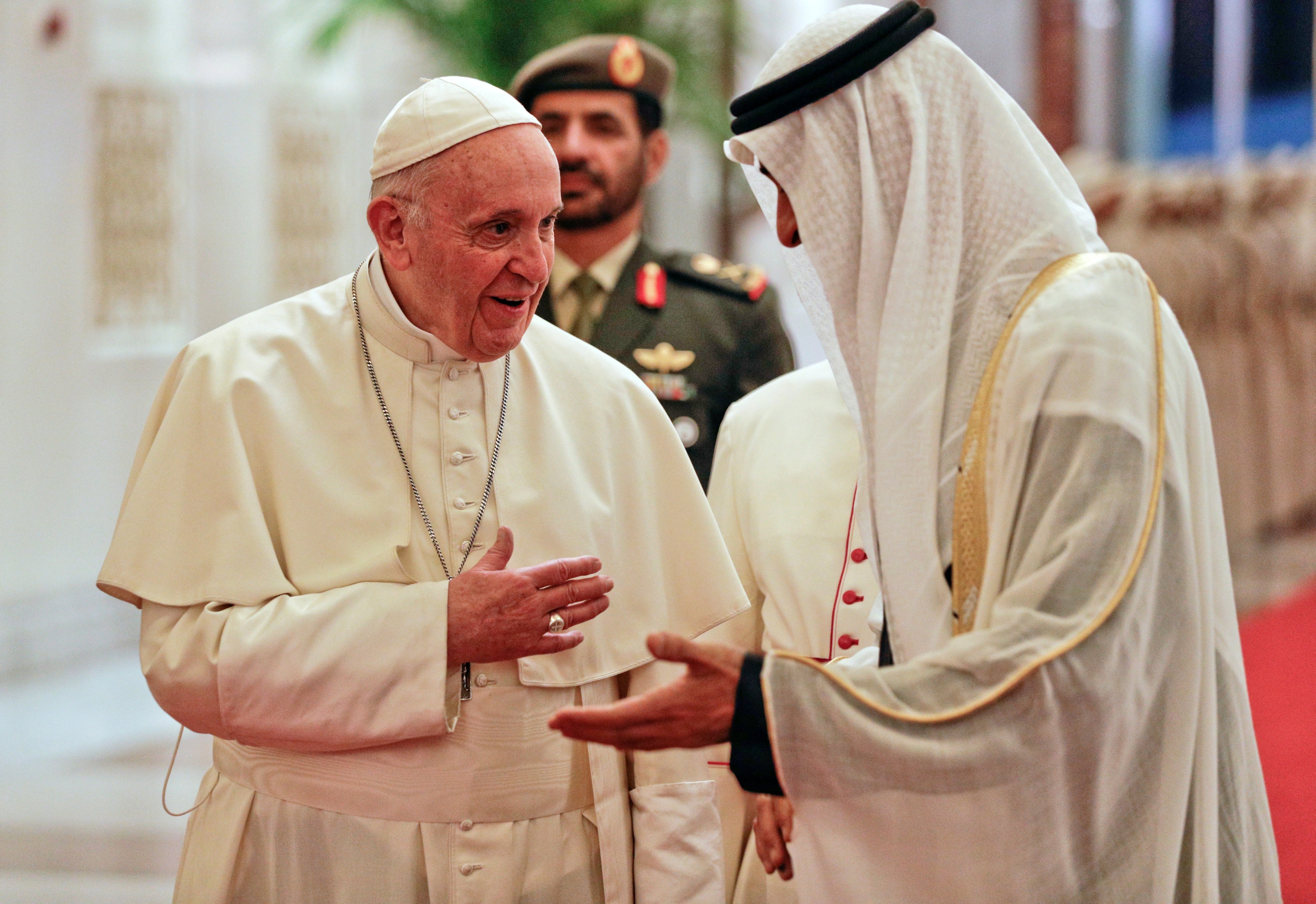
Pope Francis was fulsome in his praise of the United Arab Emirates ahead of his visit to Abu Dhabi, one of seven emirates – and the most powerful - that make up the Gulf nation.
In a video address ahead of the trip he described the UAE as "a country that is striving to be a model for co-existence, human fraternity, and meeting of faiths and civilisations".
A model for co-existence?
The visit is in the wake of Abu Dhabi’s spectacular own goal in the Asian Cup where fans of fellow Gulf Cooperation Council (GCC) member Qatar were denied entry and in the semi -final match, won 4-0 by Qatar, the Qatari players were subjected to a barrage of boos, bottles and shoes.
All this because Abu Dhabi’s crown prince and the effective ruler of the UAE, Mohammed bin Zayed, harbours an intense dislike for Qatar’s emir, Tamim bin Hamad Al Thani. Together with the Saudi crown prince, Mohammed bin Salman, Bin Zayed launched an air, sea and land blockade of their small Gulf neighbour in June 2017, one that continues to this day.
New MEE newsletter: Jerusalem Dispatch
Sign up to get the latest insights and analysis on Israel-Palestine, alongside Turkey Unpacked and other MEE newsletters
The Pope's visit is a public relations coup that will no doubt go a long way to repairing the damage to UAE's global image
In the UAE, anyone showing sympathy towards Qatar faces a jail sentence of up to 15 years and fines equivalent to $136,000, so virulent is Mohammed Bin Zayed’s hatred. Hardly the action of a leader and a country that the pope described as a “model for co-existence.”
Still, the visit is a public relations coup that will no doubt go a long way to repairing the damage to its global image occasioned by the ill-mannered and vindictive treatment of the Qatari football team who, in a wonderful moment of karmic justice, went on to win the cup.
It is also useful to the Catholic church, as the visit is the first by a pontiff to the Gulf region. The visit coincides with an interfaith gathering where Pope Francis will meet with the Egyptian Sheikh Ahmed al-Tayeb, Al-Azhar's Grand Imam. For the Emiratis, it is an opportunity to celebrate and showcase religious tolerance. To give the country its due, the UAE is a far more religiously tolerant place than neighbouring Saudi Arabia.
A lifetime gratitude
The Pope’s mass, heavily attended by Catholic migrant workers, is of huge significance to the UAE’s large Filipino community. The National, the leading English language newspaper in the UAE, could barely contain its enthusiasm, rhapsodising that for those attending the mass it was a dream come true and a moment they will cherish forever: “With that moment will come a lifetime of gratitude to the UAE’s rulers, who last year invited Pope Francis to visit the country and have fostered a society in which freedom of worship is afforded to all.”
The pope speaks often of the exploitation of the poor so one hopes that he is familiar with reports about the dreadful abuses inflicted on migrant workers by their Emirati masters
The Pope speaks often and eloquently of the exploitation of the poor. One hopes that he is familiar with reports from organisations such as Human Rights Watch and Amnesty International about the dreadful abuses and terrible wages and living conditions inflicted on migrant workers by their Emirati masters.
Even with new legislation intended to improve conditions, the kafala or sponsorship system remains intact. With that being the case, exploitation of migrants remains firmly entrenched.
In that context, “a lifetime of gratitude to the UAE’s rulers” strikes a rather more ominous and oppressive note. Those within the Catholic migrant community with the temerity to seek better terms or escape exploitation and abuse are ingrates: we brought you the Pope, how dare you ask for anything more.
UAE's prisoners of conscience
And one wonders, too, whether the Pope’s sermon could penetrate the walls of Abu Dhabi’s Al Wathba prison. Were Pope Francis himself allowed entry and given full access to its prisoners, he would meet Ahmed Mansoor, detained in solitary, arbitrarily and unjustly sentenced to 10 years and fined 1 million Emirati Dirham ($273,000) for peacefully expressing his views. That sentence came after years of harassment by the authorities as he bravely persisted in calling for free speech and political reform.
In 2015, in acknowledgement of his efforts, he received the prestigious Martin Ennals Award for Human Rights Defenders for his work documenting the human rights situation in the country.
Two years later he was arrested, held in an unknown place and tortured before being brought to court and convicted in an egregiously unfair trial for publishing “false information, rumours and lies about the UAE” which would damage the country’s “social harmony and unity”.
Or the Pope could talk with Dr Nasser bin Ghaith, a distinguished economist and academic who was held in an unknown place for more than a year before being convicted of similar charges and sentenced like Ahmed Mansoor to ten years in jail.
He has launched hunger strikes to protest his conviction and the treatment of prisoners. Bin Ghaith's health is so precarious that Amnesty International has called for his immediate release.
If he was given freedom to visit, Pope Francis would also find dozens of other prisoners of conscience and the lawyers who had striven to defend them. They were similarly seized, tortured and convicted using coerced confessions.
He would learn of family members seized and incarcerated because they took to social media to object to the brutal treatment being meted out to their loved ones. He would inform himself of the case of a Jordanian journalist, Tayseer al-Najjar, who has served his three-year sentence but is still being held.
Under the UAE’s draconian anti-terror laws, he was convicted for Facebook posts he made before he came to work in the UAE as a culture and arts reporter.
A vicious police state
In Al Wathba prison, the Pope might find that the country he has called “a model for co-existence and human fraternity” is in fact a vicious police state that uses some of the most sophisticated surveillance technology in the world to spy on and to repress not only its own citizens but others who dare to criticise and condemn its behaviour.
In January, Pope Francis made a point of observing and celebrating the 70th anniversary of the Universal Declaration of Human Rights. In reporting that event, the Vatican News said the Pope has conducted an “untiring and outspoken campaign in favour of those rights lacking to many in today’s world.”
Is it possible that he carried that campaign with him to the United Arab Emirates?
The views expressed in this article belong to the author and do not necessarily reflect the editorial policy of Middle East Eye.
This article is available in French on Middle East Eye French edition.
Middle East Eye delivers independent and unrivalled coverage and analysis of the Middle East, North Africa and beyond. To learn more about republishing this content and the associated fees, please fill out this form. More about MEE can be found here.



